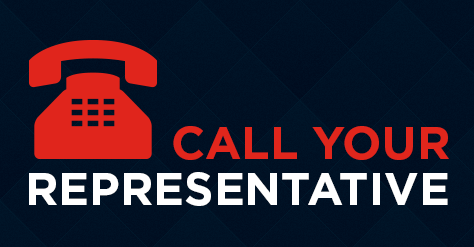Of ALL federal funds due to them being a sanctuary state now
http://time.com/4724121/california-sanctuary-state-bill-passes-senate-immigration/
http://time.com/4724121/california-sanctuary-state-bill-passes-senate-immigration/
Follow along with the video below to see how to install our site as a web app on your home screen.
Note: This feature may not be available in some browsers.
Of ALL federal funds due to them being a sanctuary state now
http://time.com/4724121/california-sanctuary-state-bill-passes-senate-immigration/
Federal government can't enforce it's own laws? It needs the states to do the work for them?

So, we should not let FBI Agents into California to help them on cases the locals can't handle?
Fbi should not be going in. The Marines should be. What a joke California is becoming.
The federal government is asking the states to enforce it's laws for them. I see no reason why the states should be forced to comply. States have enough work to do with enforcing their own laws.
We need to do more than stare at this administration.So torn...on one hand, OP is exactly why we have an ignore button and yet I can't help but stare at train wrecks...
The more you post the more I think you are a Russian troll.Of ALL federal funds due to them being a sanctuary state now
http://time.com/4724121/california-sanctuary-state-bill-passes-senate-immigration/
California is among a handful of so called “donor states,” which pay more in taxes to the federal Treasury than they receive in government funding.
I think expenditures on running the government and defense are counted in the returned dollars. My understanding is there are just two pots in the calculating. The pot of money from all sources flowing out of the state to the federal government and the pot of money from all sources flowing back to the state. It's not just direct state aid for roads or welfare, but everything going into the state economy from a federal funding source.I've never quite understood this concept of "donor states." I totally understand the idea that some states get a smaller percentage of the federal tax dollars paid by their residents back from the Feds than other states do. But I can't believe that any state gets any where near 100% back, even the ones which get the most federal aid. After all, before providing aid back to the states, the Feds have a ton of stuff to pay for to run the federal government and pay for the national defense.
But I can't believe that any state gets any where near 100% back, even the ones which get the most federal aid.
I think expenditures on running the government and defense are counted in the returned dollars. My understanding is there are just two pots in the calculating. The pot of money from all sources flowing out of the state to the federal government and the pot of money from all sources flowing back to the state. It's not just direct state aid for roads or welfare, but everything going into the state economy from a federal funding source.
Put another way, California is #46 on the list of federally dependent states...
https://wallethub.com/edu/states-most-least-dependent-on-the-federal-government/2700/
Put another way, California is #46 on the list of federally dependent states...
https://wallethub.com/edu/states-most-least-dependent-on-the-federal-government/2700/
I think expenditures on running the government and defense are counted in the returned dollars. My understanding is there are just two pots in the calculating. The pot of money from all sources flowing out of the state to the federal government and the pot of money from all sources flowing back to the state. It's not just direct state aid for roads or welfare, but everything going into the state economy from a federal funding source.
90% of the most dependent states vote Trump. 80% of the least dependent states vote Clinton. When are the righties going to get off the government teat?
Yep. But they'll tell you how much money they would donate to good causes if there were no taxes! That's why they're retards. They take more than they pay in taxes right now and it ain't even close. They live in fantasy land and think they're fooling anyone with their bullshit. It's comical.90% of the most dependent states vote Trump. 80% of the least dependent states vote Clinton. When are the righties going to get off the government teat?
There is truth there. IMO, the bigger issue is so much government aid is hidden that many voters don't realize they are subsidized. When the folks hitting retirement age went to the University of Iowa, the government paid the majority of the cost, but they don't feel that they were on welfare because they didn't have to do anything to receive that aid, it was automatic. The same sort of wealth transfer happens in every small town in America where funds are collected in the city and reinvested into rural utilities, infrastructure and services that the rural folks couldn't afford on their own. Again they all feel like they are independent because they don't see where the money for their electricity or water or sherif really comes from.Most conservatives have no problem taking government assistance. In their minds, they're one of the good ones who really deserve the money. They see other people as the ones who are just living off the government.
So would everyone else who buys food.Take away the farm welfare and 70% of the Republicans on this board would scream like children.
FBI as a service to the states assists states in investigating crimes that where broken under that state's laws. The FBI does not make the arrest it only provides resources that the states may not have access to.
The federal government is asking the states to enforce it's laws for them. I see no reason why the states should be forced to comply. States have enough work to do with enforcing their own laws.
Take away the farm welfare and 70% of the Republicans on this board would scream like children.
Says the Clown fan whose football program relies on welfare. How can we take you seriously?Did you know that only 11 percent of the USDA's payout go to farmers??
Says the Clown fan whose football program relies on welfare. How can we take you seriously?
Look it up. I was just at a USDA presentation yesterday and the graph show 11 percent to farmers and this was a USDA presentation. I'll be honest I was surprised at that number.
I'd like to see some support for that claim.

California would be fine with the deal as they, like most of the blue states, pay for the red state welfare state. Cali keeps its federal tax payments and forfeits receipt of federal money from DC. Done. Settled. Next.
I'd like to see some support for that claim.

